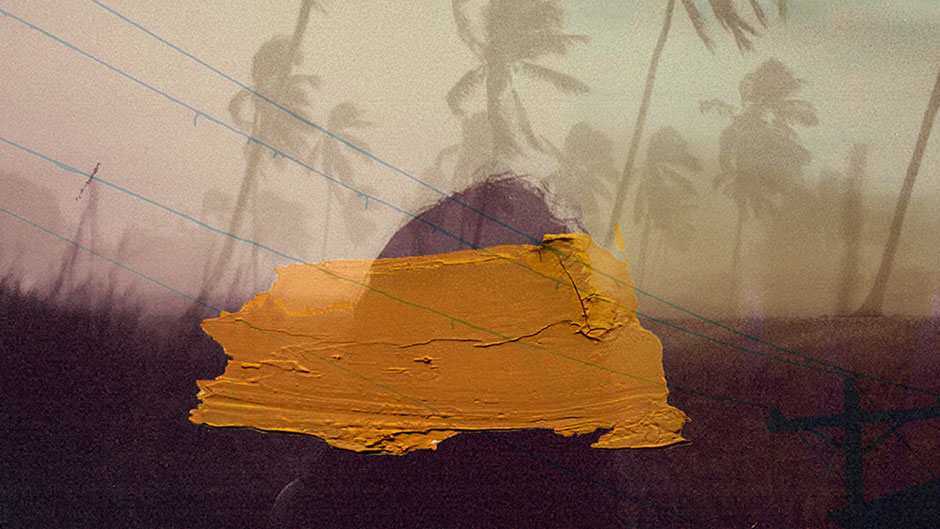The “Sub-Tropical and Tropical Coastal Resilience: Social, Economic, and Physical Adaptations in South Florida and the Caribbean” symposium promoted an interdisciplinary approach for the growing global movement that seeks to anticipate and prepare for the shocks and stresses related to climate change.
Renowned medical anthropologist Paul Farmer and Miami-Dade County’s Chief Resilience Officer James Murley, in their respective keynote presentations, headlined the many panelists who shared their insights and experiences during the full-day virtual conference.
The symposium, the first of a series of planned biannual events to be offered by the University, was co-hosted by the School of Architecture, the Institute for Advanced Study of the Americas, Graduate Studies, the School of Architecture Center for Urban and Community Design, the Master of Professional Science in Urban Sustainability and Resilience program, and the Patti and Allan Miami Herbert Business School M.S. in Sustainable Business program.
Jeffrey Duerk, executive vice president for academic affairs and provost, and Rodolphe el-Khoury, dean of the School of Architecture, welcomed attendees to the virtual conference.
“The multidisciplinary and interdisciplinarity of the symposium mirrors the University’s diverse research endeavors,” said Duerk, noting that through our involvement “we continue to grow our commitment to partnerships with regional and local academic organizations; with local, state, and federal governments; and nonprofits and community groups to address these important issues.”
El-Khoury pointed out that the wide array of speakers “offers new comprehension into not only how climate change is driving transformation in the lives of individuals, communities, and society at large, but also how these same actors are contributing to finding innovative pathways towards resilience.’’
The dean especially recognized the efforts of Sonia Chao, director of the Center for Urban and Community Design, “whose work has long probed the intersection of climate change, resilient design, and historic preservation and is shaping the school’s architecture in coastal resilience,” he remarked.
In his plenary presentation, Murley provided an overview of Resilient305, the Miami initiative launched in 2019 with support from the Rockefeller Foundation. The endeavor has grown to actively engage many of the county’s 34 municipalities through a range of action steps and benchmarks that aim to improve social equity, innovation and technology, and intergovernmental collaboration.
Murley illuminated the role of the Metrolab Network, a collaborative of the county, the cities of Miami and Miami Beach, the University of Miami, Florida International University, and Miami Dade College. He noted the climate modeling research of Amy Clement, a professor in the Department of Atmospheric Science, and other researchers in an area of northeastern unincorporated Miami-Dade County “that bodes well as a national model for the work going on in our universities.”
As part of a lunchtime keynote conversation, Farmer spoke with Felicia Knaul, director of the Institute for Advanced Study of the Americas and also a public health expert.
Farmer pointed out that public health systems in the United States and in many other countries “have been [financially] starved for the last 50 years” and “are generally “weak, patchwork systems that do not lend themselves to a coherent response” to a natural or environmental disaster.
In answer to a question regarding the most important health-related response in a disaster, Farmer emphasized that from his decades of experience in Haiti and around the world “material things—staff, stuff, spaces, and support”—are most essential, and often can inspire the hope for individuals struggling to survive.
Non-governmental organizations (NGOs) are often more competent at supplying needed care in a crisis, Farmer said. Partners In Health, the NGO he co-founded in 1987, serves millions of patients in 11 countries—with enormous impact in Haiti—and employs some 20,000 workers. “Having more people involved in health care is an important marker of success,” he said.
Both Farmer and Knaul concurred that “dignification”—respecting and dignifying patients who seek and need care—is a most critical element of effective care.
President Julio Frenk offered closing remarks. He accentuated the unique format that convened a rich diversity of presenters and the breadth of topics—from disaster mitigation and gentrification to cultural identity and the role of the arts and education—comprised under the resiliency umbrella.
“An interdisciplinary and integrated approach to complex issues is one of the most important aspects of research here at the University of Miami,” Frenk said. “This approach—bringing diverse fields and perspectives together—is essential if we are truly to become resilient.”
The president noted the value of the dialogue sessions in generating insights of particular interest to University units and initiatives: urban policy and the equitable and wise use of our financial resources (Center for Urban and Community Design and the Master of Professional Science in Urban Sustainability and Resilience program), the infrastructure options that support and enhance our daily lives and our commitment to environmental protection (Rosensteil School of Marine and Atmospheric Science), the realities of how a changing climate is shaping peoples decisions to move and seek shelter in new places (Institute for Advanced Study of the Americas), the challenges and the opportunities that exist in the built environment and the leaders—locally here in Miami—who are developing pathways forward (School of Architecture), and the crucial function that education plays in fostering partnerships and nurturing the upcoming generations as they begin to take the reins and work toward meaningful and effective change (Graduate School).
He acknowledged the contributions and insights of the many speakers who participated.
“We are delighted to work with each of you for the advancement of knowledge and for the promotion of a dialogue that can lead to effective solutions to the most consequential challenges facing all of humankind,” Frenk said.
All sessions will be available as recorded files via CoastalResilience.Miami.Edu within the next few weeks.

